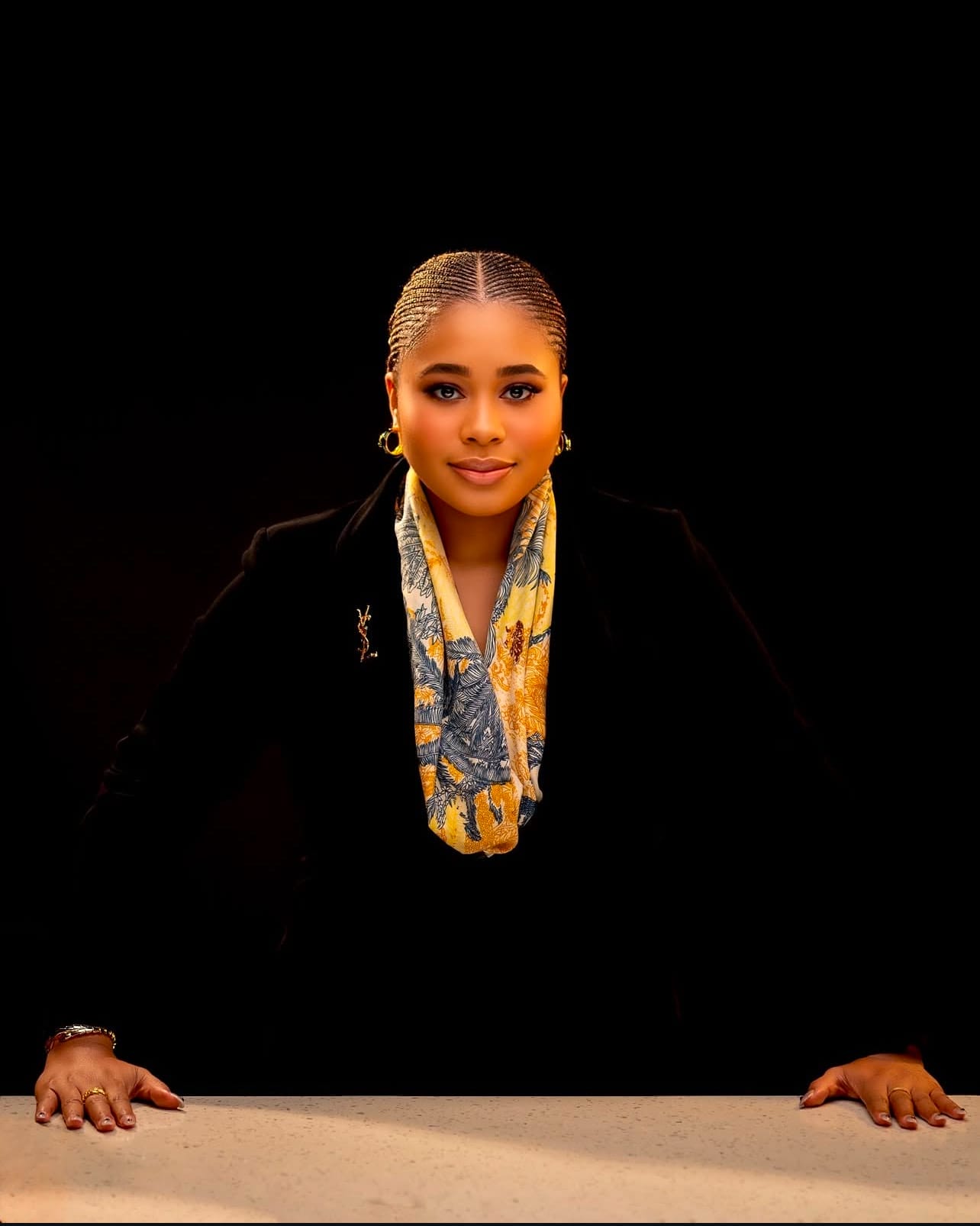Breaking Barriers with Sally Suleiman. A Mission to Empower Women and Drive Sustainable Change
To many women out there, it takes a lot of power, strength, and guts to assume the position of a leader. Leadership is more than just holding a title—it’s about action, impact, and the courage to challenge the status quo. One woman, Sally Suleiman embodies this philosophy.
As the newly appointed Special Adviser on Sustainable Development Goals (SDGs) to the Executive Governor of Edo State, she is not just advocating for change; she is making it happen.
Her work in governance, women’s empowerment, and sustainable development is a testament to her dedication to breaking barriers and creating opportunities for those who need them the most.
In this conversation, she shares her vision, challenges, and the driving force behind her mission to uplift women and transform communities.
CA: Can you share your vision for empowering women and promoting sustainable development in Africa?
Sally: My vision is centered on creating real opportunities for women to lead and contribute meaningfully to sustainable development. This means breaking barriers—social, economic, and cultural—that limit women’s participation in governance, business, and education.
In Edo State, my goal is to implement policies and initiatives that provide women with access to quality education, healthcare, and economic empowerment programs. When women thrive, society thrives, and sustainable development becomes achievable.

CA: What sparked your interest in governance and leadership, and how has your passion evolved over time?
Sally: My interest in governance was shaped by my early understanding that real change happens when people in leadership take action. Over time, I’ve seen how policies, good or bad, directly impact lives.
My passion has evolved through personal experiences and my interactions with communities that struggle with basic necessities. I realized that being in a position to influence policies gives me a platform to create meaningful impact, and that’s what drives me every day.
CA: You’re known for your tireless efforts to drive positive change. What motivates you to continue pushing boundaries, and how do you measure success?
Sally: Impact. When I see tangible results—whether it’s a young girl getting access to education, a community benefiting from sustainable development initiatives, or a policy shifting to favor inclusion—it fuels me.
Success, for me, is measured not just in numbers or reports but in real-life transformations. I also remind myself that every step forward, no matter how small, is progress.
CA: Can you share a pivotal moment or challenge that tested your resolve? How did you overcome it, and what did you learn from the experience?
Sally: One of the toughest periods in my life was battling fibroids for nine years before finally undergoing surgery. It was a physically and emotionally draining experience, made worse by the fear of surgery and the toll it took on my health.
That experience taught me resilience and the importance of prioritizing health. It also deepened my commitment to advocating for better healthcare systems, especially for women who need access to life-saving treatment.
CA: As one of Forbes’ Inspirational Women, you’re an inspiration to many. How do you believe your African heritage and upbringing have influenced your perspective and approach to leadership?
Sally: My African heritage has instilled in me a strong sense of community and responsibility. Growing up, I saw the power of collective effort—how communities come together to solve problems, how culture shapes resilience.
That has influenced my leadership approach. I believe leadership should be about service, about ensuring that no one is left behind. My upbringing taught me to work hard, to be strategic, and to never be afraid of challenges.
CA: What advice would you give to young African women just starting out on their own journeys? What challenges may they face, and how can they overcome them?
Sally: First, believe in yourself. The journey won’t be easy—there will be resistance, stereotypes, and moments of doubt. But resilience, preparation, and finding the right support system will help.
Surround yourself with people who uplift you, seek knowledge, and don’t be afraid to take up space. Also, understand that failure is part of the process; learn from it and keep pushing forward.
CA: Can you tell us about some exciting initiatives you’re working on to promote sustainable development and women’s empowerment? How do you hope they’ll impact the community?
Sally: Right now, I’m focused on strengthening Edo State’s SDG framework, particularly in education, healthcare, and economic empowerment. One major initiative in the works is securing international partnerships and funding to improve schools and provide skill-based training for women and youth.
We’re also looking at sustainable agriculture programs that equip women with resources to become self-sufficient. The goal is to create long-term impact, not just temporary solutions.
CA: Looking back, what partnerships or collaborations have been instrumental in your journey? How have they helped shape your approach to leadership?

Sally: More than formal partnerships, friendships have played a crucial role in my journey. I’ve been fortunate to have people who believed in me, mentioned my name in rooms filled with opportunities, and opened doors I never even knew existed.
These relationships have reinforced the importance of support systems, mentorship, and the power of community in leadership.
CA: How do you see African women leaders competing or collaborating on a global stage? What opportunities or challenges do you think they’ll face, and how can they prepare?
Sally: African women leaders are already making their mark globally, but there’s still a long way to go. The challenges include systemic biases, limited access to funding, and sometimes, cultural expectations that undermine women’s leadership.
However, the opportunities are vast—technology, entrepreneurship, and policy advocacy are opening doors. To compete globally, we need to build strong networks, invest in knowledge, and be intentional about positioning ourselves for leadership roles.
CA: What’s one lesson you’ve learned from failure, and how has it shaped your approach to leadership and innovation?
Sally: I’ve learned that failure is not the end—it’s just redirection. There have been moments where things didn’t go as planned, where I faced setbacks or opposition.
But each time, I took a step back, reassessed, and found a new way forward. Failure has taught me to be adaptable, to always have a plan B, and to never be too rigid in my approach. Growth comes from learning, and every challenge is an opportunity to do better.
As a strong advocate for women empowerment, Sally Suleiman is making a name for herself, and many women in Africa, especially in a world where women have to double their strength to compete with the other gender. She is a beacon of hope to many young and old women out there.




